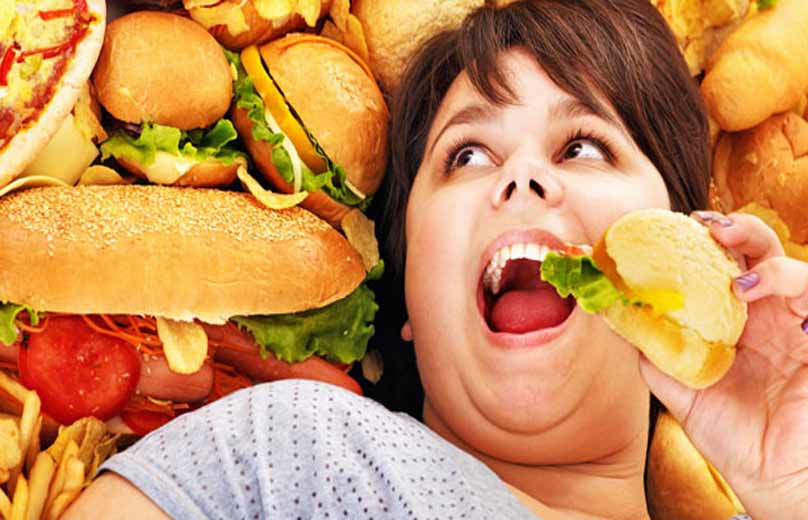Helping Yourself
Be Your Own Best Resource
Are you concerned about the ways you deal with food? Or how you think about your body? If so, there are numerous ways you can help yourself and begin the practice of healthful living from the “inside out.” Here are eight suggestions to get you started.
- Daily Check-in: Am I Eating to Feed Emotional Hungers?
Sometimes we resort to dieting, bingeing, excessive exercising, or other unhealthy “body” behaviors as an attempt to deal with psychological or emotional issues. It is all too common for us, especially for women living in a beauty-crazed culture, to transfer everyday life anxieties about jobs, relationships, and unexpected changes onto the shape and size of our bodies. We are under the mistaken impression that our bodies, unlike larger life and relational issues, are under control.Have you ever found yourself eating unconsciously or starting a new diet when you are feeling under pressure, upset, lonely, sad, mad, nervous, or bored? Everyone eats for emotional reasons now and then; this is normal. But when binge eating, dieting, or over exercising becomes your main coping strategy, this is a warning signal that you might be headed into unhealthy territory.If your stomach is not hungry but your mouth wants food, try to pause and figure out what is really “eating you.” Are you angry with someone? An ice-cream cone might taste good and alter your mood in the short run, but it will not solve the real problem.Are you hungry for intellectual stimulation? A friend’s company? Solitude? Emotional release? Creative expression? The challenge is to stay connected to all of our various appetites-emotional, spiritual, creative, relational, and physical-as we learn to nourish our whole selves.
- Practice Body Acceptance
This is a courageous and political act, especially in a culture that idealizes certain body sizes and types. Yet no matter how little you eat or how much you exercise, you will not be able to change your basic body type substantially because your optimal adult weight has been predetermined through genetics. Just as your height, hair type, and eye color are inherited, so is your physiologically healthiest adult weight.You can influence this to a small degree through healthy diet and exercise. But there is no avoiding the simple truth: some people are genetically designed to be heavier than others, some to have broader shoulders and bigger bones, others to have a rounder middle. Because it wants to be strong and healthy, your body will work to maintain your “setpoint” weight.Your challenge is to maintain the healthiest body you can and to accept your body as it is meant to be, given your genetic predisposition. It also helps to learn about the ways bodies change throughout the life cycle. Did you know that it is normal and healthy for females to add an extra layer of body fat during puberty? - Resist the Temptation to “Weigh” Your Self-Esteem
Sometimes people bond through “fat talk.” For example, a fat talk conversation may sound something like this: “I hate my thighs!” “Yeah, I hate mine, too.”Sometimes people bond by making food choice a moral issue and colluding in what might be called the “morality of orality.” For example: “Let’s be good and skip dessert” or “Let’s be bad and order what we want.”Your worth as a person is not determined by what you eat. Of course, it is important to learn how to eat healthfully, which means thoughtfully eating a variety of foods each day. Just as important, however, is learning how to take yourself seriously for who you are, what you care about, and the things you do to make the world a better place. When you wake up in the morning, affirm that your body is absolutely fine the way it is. What happens next? If “beauty” weren’t such a cultural concern, what would you be doing with the energy you now put into changing your appearance? - Become Media Literate
This is a powerful means of keeping your body image in perspective. Fashion magazines, TV shows, movies, and ads plastered on billboards and buses all promote an unrealistic beauty standard for women. Realize that less than 5% of the female population is genetically predisposed to look like today’s fashion model. This means that 95% of us are left out of the picture-and left feeling fat even if we are at a healthy weight.Remember that models only look like cover girls after hours of make-up application, airbrushing, and often cosmetic surgery to remove any so-called imperfections (blemishes, skin discolorations, wrinkles, thin or uneven lips, and cellulite, for instance).Don’t let cultural images and messages devour you. If you feel worse about yourself after reading a fashion magazine, cancel your subscription. If you happen to glimpse a magazine sporting a cover girl while standing in the supermarket check-out line, try talking back to the “perfect” image: “Get real! People come in all shapes and sizes.” - Be Wary of “Magical Thinking”
It is tempting to. It is tempting to buy into the belief that problems will somehow become more manageable if we could only “manage” our bodies, as in the following: “If only I could lose/gain a few pounds, or trim my waist, or firm my thighs, or fit into a smaller size, I would feel/be better.”We get fed this message from a variety of sources, sometimes from friends and family members, often from fashion ads and the media which constantly beckon us to collude in a game called “Change Your Body: Change Your Life.” But this game is a no-win endeavor. It is an example of disordered thinking that can set the stage for disordered eating (such as occasional dieting, bingeing, purging, over exercising, or laxative use) and full-blown eating disorders.Think of a woman you know who is not buying into the pressure to “weigh” her self-esteem. What is it about her you admire most? Whatever your size, whatever your shape, your life is yours to live today. What are five things you’re “weighting” to do until your body is somehow different? For example, are you waiting to wear shorts in the summertime, go swimming in public, fall in love, make a job change, dance, or begin a creative endeavor? The challenge is to stop waiting for our bodies to change to begin. Get rid of your scale and give yourself permission to begin today. - Combat “Weightism” in Yourself and in the World
Like racism, “weightism” is an unfair and cruel form of prejudice in which a person is judged or stereotyped not by body color, but by body shape or size. What are your attitudes toward people of differing body sizes and shapes? Do you ever feel better or less than someone because you think your body is superior or inferior to his or hers? How accepting or rejecting are you of your body? Have you or someone you know ever been discriminated against or hurt by comments make about body shape or size? How have you responded?Think about how passionate you are about other social-justice issues; then bring the same amount of ardor to this one. Practice taking people in general, and women in particular, seriously for what they say and do, not for how slender or “well put together” they appear. Try not to greet friends with comments about how they look. Most importantly, do not tolerate anyone else putting you or another person down based on appearance. Remember, there is no such thing as a “joke” about someone’s body. - Eat Healthfully. Do not Diet-Unless You Want to Gain Weight
If you want to live healthfully in your body and stay in your body’s healthy weight range, do not diet unless you have a health-related or medical reason to do so under a doctor’s supervision. Nonmedically supervised dieting leads to weight gain more often than not. If you do not eat enough, your body thinks it is starving and, to stay alive, adjusts its setpoint higher and fights to defend its fat.Many people become overweight due to yo-yo (repeated) dieting and irresponsible weight loss programs. The diet industry is unregulated; most promotions involve misleading advertising. The woman who claims to have lost “100 pounds in three months” likely does not maintain her lower weight over time. In fact, she typically gains back more weight than she initially lost and gains additional health risks from yo-yo dieting; however, she does lose money from the cost of the program and new clothes that will not fit in the long run.Do not fall for fad diets. If you need to lose weight for health reasons, talk to your internist and ask for a referral to a nutritionist who can help you learn how to eat sensibly and create an all-around healthier lifestyle. - If You Think You Have a Problem . . .
Talk to someone you trust such as your doctor, a school counselor or nurse, clergy person, favorite aunt, parent, sibling, or friend. Do not stay in isolation when you are suffering. Instead, find out what kinds of help are available in your community. You deserve to get the help you need and the support of a professional who can “coach” you towards happiness and health.







